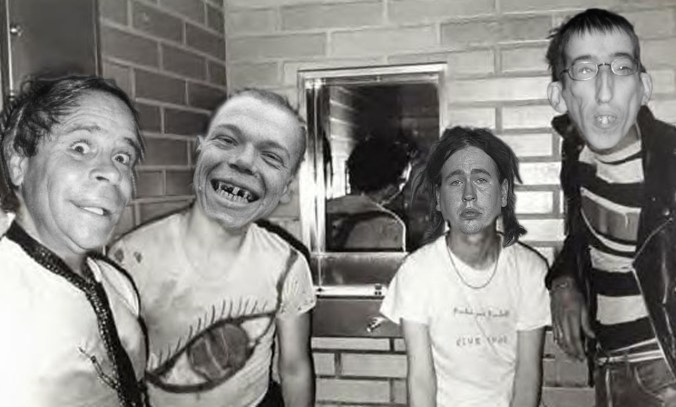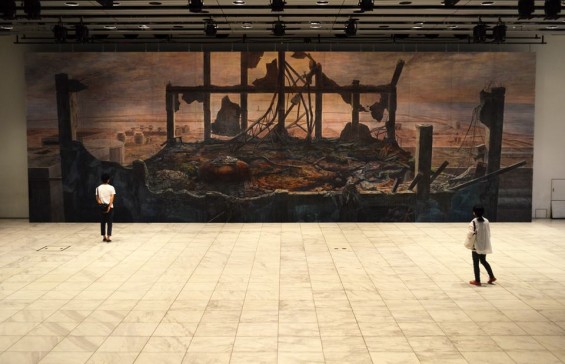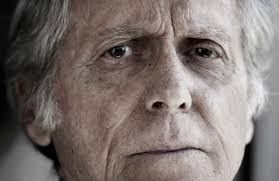 Chapter 1: Losses and Gains
Chapter 1: Losses and Gains
I’m a 47-year-old man who’s lost a portion of my left leg to diabetes, my erstwhile wife to — and I’m not making this up — a yoga teacher ten years her junior.
I would like to think, however, that through these two rather major subtractions, I have gained a greater appreciation for what I’ve come to call the Whatness-of-the-Right Now (WORN), Now I pay heed to the slow softshoe of the keyboard’s clicking, note the redness of the Bic lighter lying next to my empty coffee cup, the grain of the walnut of this desk that once was a tree, the steady samba sway of the branches of magnolia outside my study’s smudged window panes.
As that master of the Whatness-of-the-Right-Now, Van Morrison, once scatted, “It ain’t why why why why why; it just is.”
So I’ve tried to jettison the dichotomy of wise and unwise and replace it with interesting versus uninteresting, which, of course, is inviting Old Man Trouble to crash on your couch. Also, I guess I should mention I have a 17-year-old daughter Bronwyn whom I’m attempting to nudge in the right direction, i.e., a path that leads to happiness. Of course, at her point in life, WORN and opting for what’s-interesting over what’s-not-interesting is as foolish as encouraging her to read The Sound and the Fury in the dad/daughter book club we’ve formed. [1]
Dad, I’ve decided to go to the all-night rave in a club downtown instead of the Drama Club production of Annie. The rave sounds more interesting. Yes, I have my fake ID! Jeez, Dad!
The thing is, though, when WORN kicks in, everything is interesting – even the logo of the Allstate bill that lies next to the empty coffee cup.

Why blue?
Are the hands about to receive a communion wafer?
Are we the communion wafer?
Are they the Hands of God?
How come the A is listing to the right?
How much was the creator of the logo paid?
Hang Outs
After our divorce, Gwen and I sold our house on Limehouse Street in Charleston, SC, and I moved to a barrier island called Folly Beach, the most bohemian of Charleston’s beaches. I live on the backside facing the Folly River in a small one-story, two-bedroom bungalow propped on pilings, but my study faces the front of the house because I don’t want the constant Darwinian dissonance of pelican plummet – splash – or the baby-butchering sounds of raccoon sex — or the insect-like buzz of jet skis to distract me as I try to put into words what is happening.
After the amputation, which I prefer to call dismemberment, I retired from my job as the arts editor at the paper and became a househusband, which drove both Gwen and Bronwyn crazy. Did I mention I am a smoker? An occupational hazard in journalism and a must-not for diabetics. Of course, I smoked outside on the verandas (there were two, one upstairs, one downstairs) running along the front the house (whose side faced the street in typical Charleston fashion), but even my smoking on the porches irritated spouse and daughter. Also, I had erectile issues, not-exercising issues, Jameson whiskey issues (another diabetic no-no); nevertheless, Gwen’s affair with the vapid spike-haired Brandon I could have not imagined; her moving out on me and in with him after 22 years of marriage seemed almost goddamned cartoonish. In this case life imitates unimaginative romantic comedies.
Milton’s Satan, one of my boyhood heroes, says that “sometimes solitude is best society,” and I get plenty of it now, but I do every afternoon, depending on my mood and/or the weather, visit one of two Folly Bars, Chico Feo or The Jack of Cups.
Chico Feo is right across Second Street East from Berts, a small grocery store that’s been in operation for 60 years. I guess you could call Chico Feo an alfresco dining experience featuring Caribbean cuisine or a funky drinking establishment without a roof. It’s in the backyard of an old un-air-conditioned two-story house where they prepare the food, goat curry, beans and rice, tacos. The bar forms a barrier to the back door of the house where the kitchen is located. Beers are retrieved from coolers, or rather, large ice-filled tubs. Throughout the day whatever bartender’s on duty — Charlie, Tyler, Paul, or Greg — makes the trek across the street to Bert’s to procure more ice.
Chico Feo is only six blocks from my house, so I ride my bike, adding to the island’s quirky charm, a one-legged man with a notebook in his hand peddling a mountain bike on a flat barrier island. By the way, prosthetic legs have come a long way since Flannery O’Connor’s Hulga stumped her way up into the hayloft and into the arms of Manly Pointer. I opted for functionality rather than cosmetics in choosing mine, which I have rather pompously christened “Ahab,” though if you check out this link on eBay, you can find some pretty tempting vintage models, advertised with élan: http://www.ebay.com/bhp/prosthetic-leg
From my private collection :
Rare german steampunk vintage pre WW1 (about 1900 – 1910) leather wooden foot with metal spring!
Very rare steampunk collectible – stay like this or do some restoation work on it for art design, museum collection or just an outstanding weird item for home design
outside leather is in very good condition for it’s (sic) age, rust on metal braces , inside of socket worn out and very used .
an unique item!
of course not for medical use !!!

Anyway, I usually wear long pants, unless temperature tops 90 or so, and though I admire those who flaunt their prosthetics, like Paul McCartney’s ex-wife, I’m also a great admirer of Ray Charles, whose dark glasses shielded children from at least one awful truth.
The Jack of Cups, my other hang out, is a small brew pub that features kickass Thai-like cuisine, though the owners/chefs are very white people from Santa Monica, as nice as they can be, and very talented when it comes to cooking.
I’m there right now, talking to one of the bartenders, Fiona, an articulate, culturally aware young woman with gorgeous wavy red hair, very pale freckled skin, and prominent hazel eyes that chameleon like change colors from light brown to green. She’s originally from Savannah, and although I wouldn’t quite yet call her Rubenesque, she’s headed in that direction. She actually edited the literary magazine at Bowdoin, has published poetry in on-line journals. We end up talking about Devon, an aspiring fiction writer who works at Berts.
“So, what you working on, Jake?” she says as I turn the page of a manuscript.
“It’s not mine. It belongs to Devon. It’s his latest novel.
Fiona rolls her eyes, adds a theatrical sneer.
Devon is a very upbeat young African American in his early twenties with excellent facial features but who is uncomfortably overweight. If one day Fiona might be Rubenesque, Richard is already giving Sydney Greenstreet a run for his money. Apparently, he spends every moment off work writing (and eating). When he talks about his latest project, he goes manic, as if you might be as interested in his made-up world as he is, which makes him a very poor conversationalist for a practitioner of WORN. He’s not interested in anything else but his “art,” not sports, not politics. I don’t think he’s ever asked me a personal question like “how did you happen to lose that leg?”

Sydney Greenstreet
“You poor, stiff,” Fiona says. “You should’ve just said no. Let me be your role model, pal. When he asked me, I said, ‘no way, amigo, no can do,’ and believe me, he can take no for an answer.”
“Well, I am a man of some leisure, and I told him I’d be brutally honest, which I intend to be.”
“Yeah, and you don’t have to worry about any potential romantic delusions he might harbor Anyway, What’s it about?”
“It’s sort of hard to explain. I just started it. Two paragraphs in. But according to him, it’s actually a video game, the plot of the novel is a video game, and like those choose-your-adventure books, you – the reader – can opt where to go, to skip 50 pages ahead if you decide to go to a movie, or instead of that, drop some LSD and jump 150 pages ahead. He fantasizes that they’ll make it into a movie and then ultimately into a video game.”
“Sounds fucked-up. Delusional. Unpublishable.”
“It’s not the plot but the prose I’m dreading.”
“Well, sweetheart, I’ll let you get back to your reading,” she says wiping off the bar. Fiona’s writing a dissertation on film noir and has started to parrot the lingo of Sam Spade and Philip Marlowe.
“Thanks,” I say, and start over reading the manuscript.
[1] Actually, we’re reading Houseman’s A Shropshire Lad, which, though a tad bit sing-songy and cloyingly melancholy, is age appropriate for both of us:
Loveliest of trees, the cherry now
Is hung with bloom along the bough,
And stands about the woodland ride
Wearing white for Eastertide.
Now, of my threescore years and ten,
Twenty will not come again,
And take from seventy springs a score,
It only leaves me fifty more.
And since to look at things in bloom
Fifty springs are little room,
About the woodlands I will go
To see the cherry hung with snow.


















